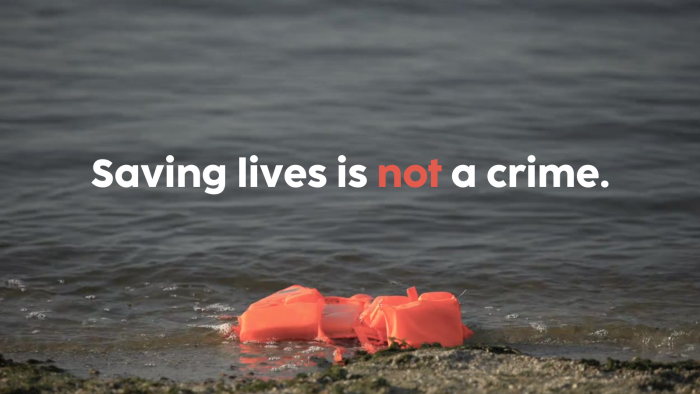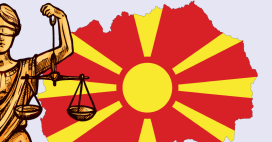
Annulment of charges against humanitarians in Greece: procedural rights victory, long way to justice
Last week, Seán Binder, Sarah Mardini and over 20 other humanitarians faced trial in Greece for providing lifesaving assistance to asylum seekers and migrants in Lesvos. Fair Trials welcomes the court’s decision to drop some of the misdemeanour charges. However, we emphasise that the charges against the humanitarians originated from the Greek authorities’ misuse of criminal justice powers.
We urge Greece to drop the remaining charges and investigations against the humanitarians. As Members of the European Parliament will debate the criminalisation of humanitarian assistance tomorrow, 18 January, we call on the European Union to take meaningful action to end the criminalisation of solidarity.
States must not impose criminal charges on people providing humanitarian support to people in need. Fair Trials was among numerous other human rights organisations to call for acquittals of the search-and-rescue volunteers, whose trial for misdemeanour charges began on 10 January 2023. Some of the misdemeanour charges were annulled last week, based on a lack of translation of many of the documents and a lack of clarity regarding charges for espionage. However, some defendants still face misdemeanour charges as well as a felony investigation.
Fair Trials’ Networks Coordinator Ioana Bărbulescu stated:
“Procedural rights like the right to interpretation and translation must be upheld. These rights have been seriously undermined in the case of the humanitarians, and we welcome the decision to annul the misdemeanour charges. However, this is not the end of the story. Many of the search-and-rescue volunteers still face what could be years of limbo with a felony investigation hanging over them.
“We must not forget that the charges against the rescuers are based on a misuse of criminal justice powers: the Greek authorities have instrumentalised their powers for political ends, and the EU has allowed them to do so. The annulment is a procedural rights victory but there is a long way to go for justice. We need all charges to be annulled, the felony investigation to be dropped, and the EU to end the criminalisation of solidarity on its borders.”
Fair Trials remains deeply concerned about the ongoing criminalisation of solidarity in Greece and the EU more widely. The humanitarians’ trial is not an isolated case. Among others, Greek human rights defender Panayote Dimitras and the Greek Helsinki Monitor have faced a decade-long harassment campaign, where legitimate actions to save lives have been reframed as human trafficking. In Cyprus, non-governmental organisation KISA faces a campaign to silence and discredit independent voices. The crew of the search and rescue ship Iuventa faces criminal charges in Italy for saving lives in the Mediterranean. Like the humanitarians in Greece, the Iuventa crew were unable to access documents translated into a language they understand.
Bărbulescu added:
“Relying on criminal justice powers to prosecute and punish humanitarians serves as a chilling effect to dissuade people from helping people in need. In the absence of safe routes for migration and asylum, civil society must be able to step in and ensure the protection of people’s rights. Instead, they find that criminal law is weaponised against them. Facing a criminal trial has serious and often irreversible consequences for an individual. The EU must stop allowing people to be used as political pawns.”


